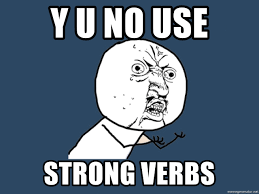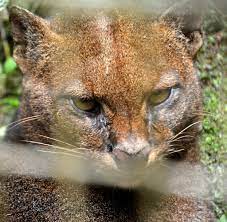Follow me on Twitter to get more tips like this! @BlackstonDan

Here's a fast tip to pump up any poem.
Remember, you only have a few seconds of trust and interest from your reader before they yawn their way to something more exciting.
So you need to grab attention as fast as you can.
Titles are important.
But so is...
Remember, you only have a few seconds of trust and interest from your reader before they yawn their way to something more exciting.
So you need to grab attention as fast as you can.
Titles are important.
But so is...
Your opening word.
Here's a list of very common, but very bad, choices:
The
I
She
He
When
As
For
My
When a poem starts with these words, you bore (and risk losing) the reader, especially if the reader is an editor who reads a thousand poems a month.
Am I saying you can't start a great poem with the words in that list? No. What I'm saying is: if you want your poem to stand out, you should make every word count. Particularly the first word.
Now, here's the secret to getting the most out of your first word.
Use a strong verb.
Verbs are what give poems motion, energy, direction, and pulse. When you start your poem with an action word, it pulls the reader in.
Here are some examples of good verbs to use to start you poem:
Absorb
Atomize
Balloon
Chew
Devour
Erase
Explode
Gobble
Gorge
Puff
Snowball
Supersize
Wolf
Yowl
As an editor and poet whose read and submitted more poems than I have hairs left on my head, I can tell you that starting a poem with a strong verb like one of those above totally works.
The rest of the poem has to be good, but if you start with a verb, you can bet you'll get people to read on!
Try it.
Should you do this in every poem? Of course not! But you should pay attention to your verbs in every poem.
If you find this tip useful in any way, please consider checking out one of my poems linked below:
I'd also really appreciate it if you followed me on Twitter -- I update every day with tips and markets for poets.
@BlackstonDan
For bonus impact try to use a series of connected verbs throughout your poem. For example, verbs associated with a particular event or motive. You could use "mix," "bake," "slice," and "serve," for example, as steps in baking a cake, but apply them to something completely different, like falling in love.
Also, if you look closely at the list of verbs, you'll see another big poetry secret: noun-verbs. Noun-verbs are nouns like "table," "knife," or "hammer" that also work as action words; in other words: verbs. In fact, one of the lucky things about writing poems in English is virtually any noun can be turned into a verb.
I challenge you to think of an English noun that can't be used as a verb.
© 2022 Daniel E. Blackston
Here's a list of very common, but very bad, choices:
The
I
She
He
When
As
For
My
When a poem starts with these words, you bore (and risk losing) the reader, especially if the reader is an editor who reads a thousand poems a month.
Am I saying you can't start a great poem with the words in that list? No. What I'm saying is: if you want your poem to stand out, you should make every word count. Particularly the first word.
Now, here's the secret to getting the most out of your first word.
Use a strong verb.
Verbs are what give poems motion, energy, direction, and pulse. When you start your poem with an action word, it pulls the reader in.
Here are some examples of good verbs to use to start you poem:
Absorb
Atomize
Balloon
Chew
Devour
Erase
Explode
Gobble
Gorge
Puff
Snowball
Supersize
Wolf
Yowl
As an editor and poet whose read and submitted more poems than I have hairs left on my head, I can tell you that starting a poem with a strong verb like one of those above totally works.
The rest of the poem has to be good, but if you start with a verb, you can bet you'll get people to read on!
Try it.
Should you do this in every poem? Of course not! But you should pay attention to your verbs in every poem.
If you find this tip useful in any way, please consider checking out one of my poems linked below:
I'd also really appreciate it if you followed me on Twitter -- I update every day with tips and markets for poets.
@BlackstonDan
For bonus impact try to use a series of connected verbs throughout your poem. For example, verbs associated with a particular event or motive. You could use "mix," "bake," "slice," and "serve," for example, as steps in baking a cake, but apply them to something completely different, like falling in love.
Also, if you look closely at the list of verbs, you'll see another big poetry secret: noun-verbs. Noun-verbs are nouns like "table," "knife," or "hammer" that also work as action words; in other words: verbs. In fact, one of the lucky things about writing poems in English is virtually any noun can be turned into a verb.
I challenge you to think of an English noun that can't be used as a verb.
© 2022 Daniel E. Blackston


